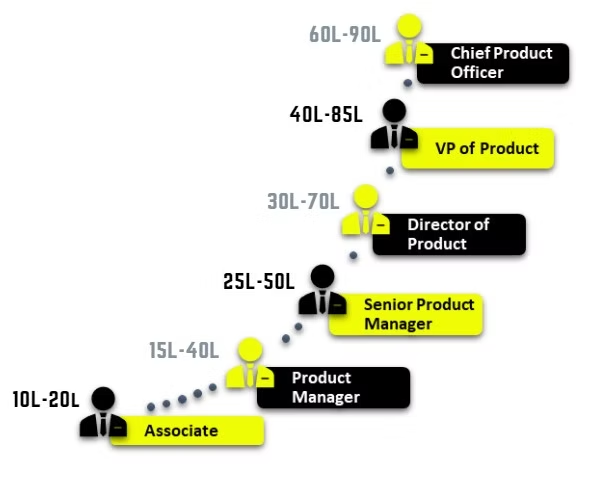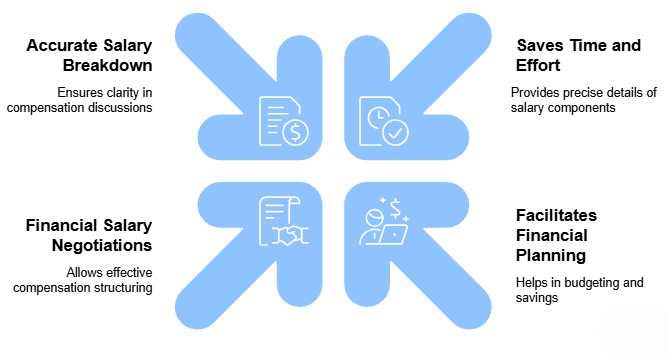
- Introduction to Product Manager Salaries in India
- Entry-Level Salary Range
- Mid-Level Salary Range
- Senior-Level Salary Range
- Factors Affecting Salaries (Location, Skills)
- Salary Comparison by City (Bangalore, Mumbai, etc.)
- Industry-Wise Salary Variations
- Impact of Certifications on Salary
- Additional Perks and Benefits
- Remote vs On-Site Salary Differences
- Salary Growth Potential
- Tips to Negotiate a Higher Salary
Introduction to Product Manager Salaries in India
Product management is a rapidly growing field in India, fueled by the expansion of technology companies, startups, and multinational corporations. As India continues to evolve into a global technology hub, the demand for skilled product managers has soared. Pursuing PMP Training can be a valuable step for professionals aiming to excel in this lucrative career path. Product managers in India play a pivotal role in defining product vision, prioritizing features, and collaborating with cross-functional teams. Their salaries vary based on experience, location, industry, and skill set. This guide provides a detailed analysis of product manager salaries in India, covering salary ranges, factors influencing compensation, city-wise comparisons, and tips for negotiating higher pay.
Entry-Level Salary Range
Entry-level product managers in India, typically with 0–3 years of experience, are often hired as associate or junior product managers. Their responsibilities include supporting senior managers, conducting market research, assisting in product roadmaps, and coordinating with teams often using tools like a Work Breakdown Structure to organize tasks effectively.
The salary range for entry-level product managers in India varies by location and company size:
- Average Salary: ₹7–12 LPA (Lakhs per annum)
- Startups: ₹6–10 LPA
- Mid-sized companies: ₹8–12 LPA
- Large MNCs: ₹10–15 LPA
Skills such as data analysis, customer research, and proficiency in tools like JIRA, Figma, and SQL can significantly influence the starting Salary. Additionally, graduates from prestigious institutions (IIT, IIM, ISB) often command higher entry-level packages.
Become a Project Management expert by enrolling in this PMP Training Online Course today.
Mid-Level Salary Range
Mid-level product managers with 4-7 years of experience lead product development, manage cross-functional teams, and drive product strategies. They collaborate closely with engineering, design, and marketing teams to enhance product performance, often applying principles of Supply Chain Management to optimize product delivery and distribution.
The typical salary range for mid-level product managers in India is:
- Average Salary: ₹15–25 LPA
- Startups: ₹12–18 LPA
- Mid-sized companies: ₹18–25 LPA
- Large MNCs: ₹20–30 LPA
At this level, professionals with expertise in agile methodologies, data-driven decision-making, and product lifecycle management are highly valued. Companies also reward professionals who demonstrate leadership skills and the ability to deliver high-impact results.
Advance your Project Management career by joining this PMP Training Online Course now.
Senior-Level Salary Range
Senior-level product managers with 8+ years of experience hold leadership roles such as Group Product Manager, Director of Product, or VP of Product. They oversee product portfolios, define long-term strategies, and make key business decisions.
The senior-level salary range in India is:
- Average Salary: ₹30–60 LPA
- Startups: ₹25–40 LPA
- Mid-sized companies: ₹35–55 LPA
- Large MNCs: ₹50–1 Cr+
Senior product managers with a proven track record of scaling products, driving revenue growth, and managing large teams are highly sought after. Equity, profit-sharing, and performance bonuses are common at this level, significantly boosting the overall compensation package.

Factors Affecting Salaries (Location, Skills)
Several factors influence product manager salaries in India:
- Experience Level: As with most professions, experience significantly impacts Salary. Senior managers earn substantially more than their junior counterparts due to their strategic expertise and leadership skills.
- Location: Salaries vary across cities due to the cost of living and local job markets. Tech hubs like Bangalore and Hyderabad offer higher salaries compared to smaller towns.
- Industry: Salaries differ across sectors, with tech and fintech companies generally offering higher pay compared to manufacturing or traditional businesses. This can often be influenced by the Halo Effect, where a company’s overall reputation impacts its salary offerings and talent attraction.
- Skills and Certifications: Proficiency in data analytics, UX design, and agile methodologies increases earning potential. Certifications such as CSPO, PMP, or AIPMM also enhance salary prospects.
- Company Size and Reputation: Larger companies and well-funded startups offer higher salaries, equity, and performance bonuses.
- Education: Graduates from top-tier institutes like IITs, IIMs, and ISB often receive higher salary packages.
Salary Comparison by City (Bangalore, Mumbai, etc.)
Salaries for product managers in India vary significantly by city, influenced by factors such as cost of living and local demand for talent. Earning certifications like PMP Training can enhance a professional’s value and impact salary potential. Here’s a comparison of average wages across major cities:
- Known as the Silicon Valley of India, Bangalore offers the highest product manager salaries due to its thriving tech ecosystem.
- With its focus on finance and technology, Mumbai offers competitive salaries but a higher cost of living.
- A growing IT hub with high-paying opportunities in startups and MNCs.
- Offers high-paying roles, especially in e-commerce and fintech companies.
- While slightly lower than Bangalore and Mumbai, these cities offer lucrative opportunities with a lower cost of living.
Bangalore: ₹20–35 LPA
Mumbai: ₹18–32 LPA
Hyderabad: ₹18–30 LPA
Delhi NCR: ₹15–28 LPA
Chennai and Pune: ₹12–25 LPA

Industry-Wise Salary Variations
Salaries for product managers vary significantly across industries:
- Highest-paying industry due to the demand for skilled product managers in SaaS, cloud, and AI-driven companies.
- Fintech firms offer attractive compensation due to rapid growth and innovation in digital payments and lending.
- Product managers in e-commerce focus on customer experience, logistics, and personalization, often incorporating Succession Planning to ensure long-term leadership and growth within the team.
- Growing industry with demand for product managers in health tech and medical devices.
- Lower salaries compared to tech, but offer stability and long-term growth potential.
Technology and IT: ₹20–40 LPA
Fintech and BFSI: ₹18–35 LPA
E-commerce and Retail: ₹15–30 LPA
Healthcare and Pharma: ₹12–28 LPA
Manufacturing and FMCG: ₹10–22 LPA
Are you getting ready for your PMP interview? Check out our blog on PMP Interview Questions and Answers!
Impact of Certifications on Salary
Certifications enhance the credibility and skills of product managers, leading to better salary prospects. Some of the most recognized certifications in India include:
- Certified Scrum Product Owner (CSPO): Demonstrates expertise in agile product management. Increases Salary by 15-25%.
- Pragmatic Institute Certification: Enhances skills in product strategy and marketing.
- SAFe Product Owner/Product Manager (POPM): Boosts career prospects in large-scale organizations using agile frameworks.
- Google Product Management Certification: Highly valued in tech companies, increasing salary potential.
- Project Management Professional (PMP): Though more project-focused, the PMP certification adds value to managerial roles.
Product managers with certifications often earn 15-30% higher salaries than their non-certified counterparts.
Additional Perks and Benefits
In addition to base salaries, product managers in India enjoy several perks and benefits. These include performance bonuses, typically ranging from 10-30% of the base salary, depending on company performance. Stock options (ESOPs) are common, especially in startups and tech firms, offering long-term wealth potential. Health and wellness benefits include comprehensive insurance coverage for health, dental, and vision. Many companies also offer flexible work arrangements, allowing for remote or hybrid work models. Additionally, companies often fund learning and development initiatives, covering certifications and courses to enhance skills.
Remote vs On-Site Salary Differences
The rise of remote work has impacted product manager salaries. While remote roles often offer flexibility, on-site positions in major tech hubs tend to pay more due to location-based compensation strategies.
- Remote Salaries: ₹15–30 LPA (mid-level)
- On-Site Salaries: ₹20–35 LPA (mid-level)
Startups and tech companies increasingly offer location-agnostic salaries to attract top talent, reducing the pay gap between remote and on-site roles.
Salary Growth Potential
Product management offers significant salary growth over time. With experience and proven success, product managers can climb the career ladder and increase their earning potential, often by incorporating principles from Traditional Project Management to enhance project execution and leadership skills.
- Entry-Level: ₹7–12 LPA
- Mid-Level: ₹15–25 LPA
- Senior-Level: ₹30–60 LPA
- Director/VP Level: ₹60 LPA–₹1 Cr+
Additionally, professionals transitioning into leadership roles (e.g., VP of Product) can earn over ₹1 crore per year with stock options and bonuses.
Tips to Negotiate a Higher Salary
To negotiate a better product manager salary in India, start by researching market rates through platforms like Glassdoor, AmbitionBox, and PayScale. Highlight your achievements, such as your impact on product growth and revenue. Leverage certifications like PMP Training to demonstrate your expertise. In startups, negotiate for equity (ESOPs) alongside your base pay for long-term benefits. Consider additional perks like bonuses, health insurance, and learning allowances, as they add significant value to your overall compensation.
Conclusion
Product manager salaries in India have become increasingly competitive, with lucrative compensation packages being offered by leading tech giants, dynamic startups, and multinational corporations. The demand for skilled product managers is on the rise, driven by the growing importance of innovative products in today’s market. As a result, product managers can expect significant salary growth over time. This growth can be accelerated by continuously upgrading their skill set, earning certifications such as PMP Training and staying informed about emerging industry trends and technologies. By mastering new tools, techniques, and methodologies, product managers can not only enhance their value to employers but also open the door to better job opportunities, career advancement, and higher earnings. Moreover, product managers who specialize in niche areas like AI, machine learning, or FinTech often see even more lucrative opportunities. With the right combination of experience, certifications, and industry knowledge, the potential for long-term career growth in product management is substantial. As businesses place a higher premium on innovation and customer-centric product development, skilled product managers are increasingly in demand, making this a rewarding and dynamic career path.





